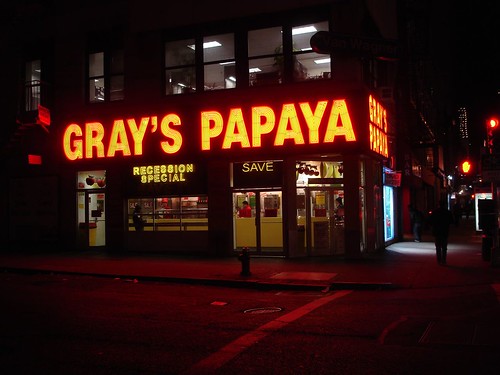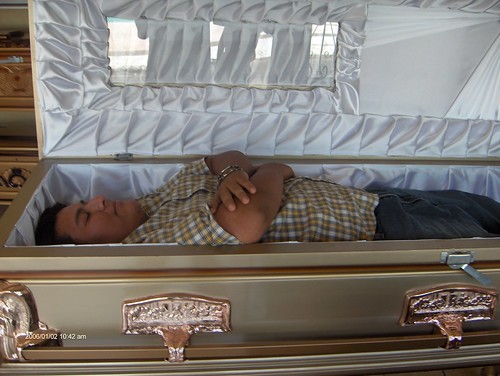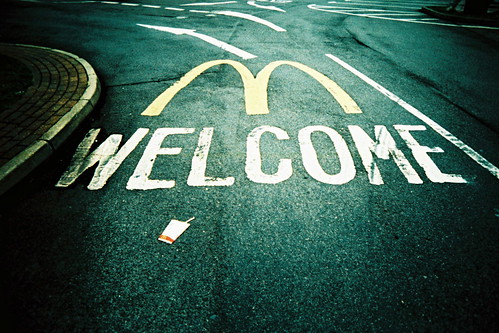 photo by circulating
photo by circulatingImagine if Tom Brady suddenly collapsed and died in the tunnel back to his locker room after he sustained an internal injury in the Patriots' defeat at the hands of Eli Manning and the Giants in Super Bowl XLII. What would the public reaction be? Would there be outrage among sportswriters and the general audience over the brutality that is the sport of football?
Of course not. "It's just part of the game." At least during the Super Bowl-era of professional football no player has died of injuries sustained on the field, and this can be attributed to changes in rules through the decades and increased protection worn by the players. Every few years or so, a new freak injury reminds us of simply how violent the game is, with the most recent case being the catastrophic neck injury to Kevin Everett of the Buffalo Bills. Everett is seemingly making a strong recovery. Sadly, we can't say the same for Mike Utley.
Lately injuries sustained by NFL players and their lasting effects have been in the forefront of discussion with the recent debate regarding the NFL's retirement plan for former players. But none of it revolves around any discussion about an abolishment of the game. We've come to accept the nature of the sport and live with it every time the season rolls around again.
Things are different with the recent death of filly Eight Belles at Churchill Downs this past Saturday in the 134th Kentucky Derby. After finishing second behind the favorite Big Brown, she collapsed on the track after breaking both of her front ankles and was immediately euthanized on the spot due to the nature of injuries that racehorses can sustain. Naturally, PETA was quick to react calling for a suspension of jockey Gabriel Saez with the absurd claim that he was aware of Eight Belles' injury in the middle of the race but kept her going. I don't know about you, but I don't think I could keep running, much less finish second, after I broke my ankles in a race.
PETA has backed off that claim at least on their website and, smartly, has focused more of the attention towards the cruelty of the sport in general. Washington Post sportswriter Sally Jenkins wrote after the death of the filly that she "ran with the heart of a locomotive, on champagne-glass ankles for the pleasure of the crowd," drawing attention to the fact that Thoroughbreds are being bred more for speed and less for stamina and durability. Unlike football, race horses are unwilling participants putting their health and life on the line for our own entertainment.
Collectively, we're all trying to cope with this crisis just over a year after the death of Barbaro. Remember him? We can debate endlessly if horses are being "overbred" for speed, if we should use artificial racing surfaces, or if we should race them at an older age than 3 years old but it's rather pointless. It would be impossible to change the breeding regimen in a sport where the point is raise an animal to go as fast as possible (how do you demarcate the amount of genetics that are geared toward speed and durability anyways?) and injuries will happen no matter what surface they race on or what age the horses are.
There is practically no middle ground in this debate. What it ultimately comes down to is whether or not you accept horse racing as an institution and with it the nature of the sport and the inevitability of more horses breaking down on the track in the near future. As the players, writers, and fans like to say, it's just part of the game.

















